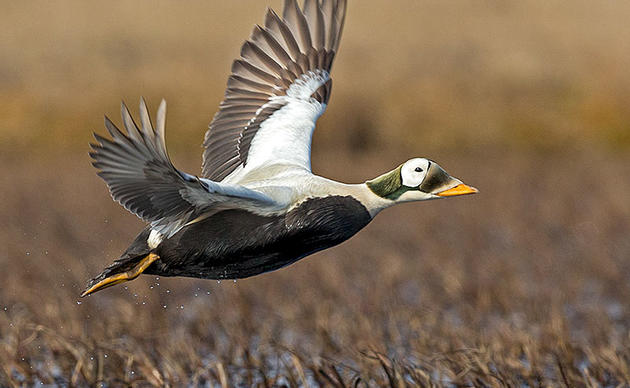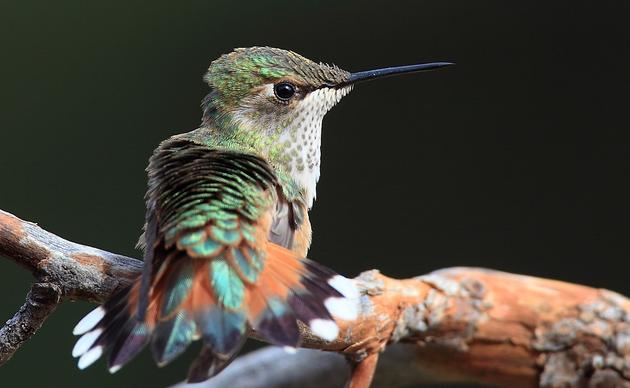Today, the Biden administration formally acknowledged that no Ambler road is the best path forward for the Brooks Range by selecting the “No Action Alternative” in the proposed road’s permit process. More than 135,000 Americans—dozens of communities, nonprofits, and companies, more than 82% testimony at hearings in Alaska, and 88 individual Indigenous governments across the region—supported this in the recent comment period.
The BLM has identified the No Action Alternative as its preferred alternative, because any of the action alternatives would significantly impact resources, including important subsistence resources and uses, in ways that cannot be adequately mitigated. A Record of Decision will be issued no sooner than 30 days after publication of the Final Supplemental EIS Notice of Availability in the Federal Register," reads part of the Executive Summary of the Ambler Road
Final Supplemental Environmental Impact Statement.
“Today’s announcement is consequential and demonstrates that the Biden administration follows Western science and Traditional Ecological Knowledge to make informed decisions about truly irreplaceable places. The wild and fully intact ecosystem of the proposed Ambler Road corridor is of both local and hemispheric importance as the lands and waters of this region support important subsistence resources like the Western Arctic Caribou Herd and nesting habitat for birds that migrate to distant places like Peru and Colombia,” says David Krause, Interim Executive Director of Audubon Alaska. “The cumulative effects of roads and mining are enormous, and preventing these impacts from occurring demonstrates the strong and necessary leadership we need to protect nature. The proposed Ambler Road would have fundamentally compromised the ecological and cultural values of the region.”
Hear more from David in pieces from New York Times and Politico.
The Ambler Access Project would have been a private, industrial corridor that would connect Dalton Highway to multiple planned open-pit copper mines. It would cut through Tribal, Bureau of Land Management, and state lands, plus 26 miles of the Gates of the Arctic National Park.
This part of Alaska—the Brooks Range, Gates of the Arctic National Park, and the surrounding region—is home to the Western Arctic Caribou Herd and the Kobuk and Koyukuk river fisheries. These are two critical food sources for the surrounding Indigenous and rural communities. The food subsistence and way of life for 66 Alaska Native villages would have been directly impacted by the road and upstream open-pit mining activities. These Indigenous communities have called these lands home for thousands of years. Advocates from Alaska and the nation followed the lead of local opposition in calling on elected leaders in D.C. to protect Northwest Alaska communities, caribou, clean water, and national parklands.
The area also boasts some of the world’s most rare and distinct wildlife, providing habitat for moose, wolves, and small mammals. Black, brown, and polar bears live here—the only place on Earth where all three coexist. In addition, 15 species of boreal birds found along the proposed Amber Road corridor already face significant decline across their ranges. This includes Blackpoll Warblers, Olive-sided Flycatchers, Sandhill Cranes, Rusty Blackbirds, Red-necked Phalaropes, and Gray-headed Chickadees. The preferred route would also cross 2,000 acres of wetlands vital to avian habitat, affecting all four species of loons, many shorebird species, and waterfowl that are, again, important food resources.
This action follows the comment period from last fall. On October 13, the U.S. Department of the Interior released a new Supplemental Environmental Impact Statement (SEIS) examining the effects of the proposed Ambler Road on Indigenous communities, clean water, and wildlife in North America’s largest protected and roadless region. During the 60-day comment period from October 20 to December 19, 2023, Audubon generated 34,990 comments urging the Bureau of Land Management to prevent the construction of Ambler Road by choosing the "No Action Alternative" in its SEIS.
For more information on the Ambler Road project history and the ecological values of this region of the Brooks Range, please see “The Eight Ws of Ambler Road.”




